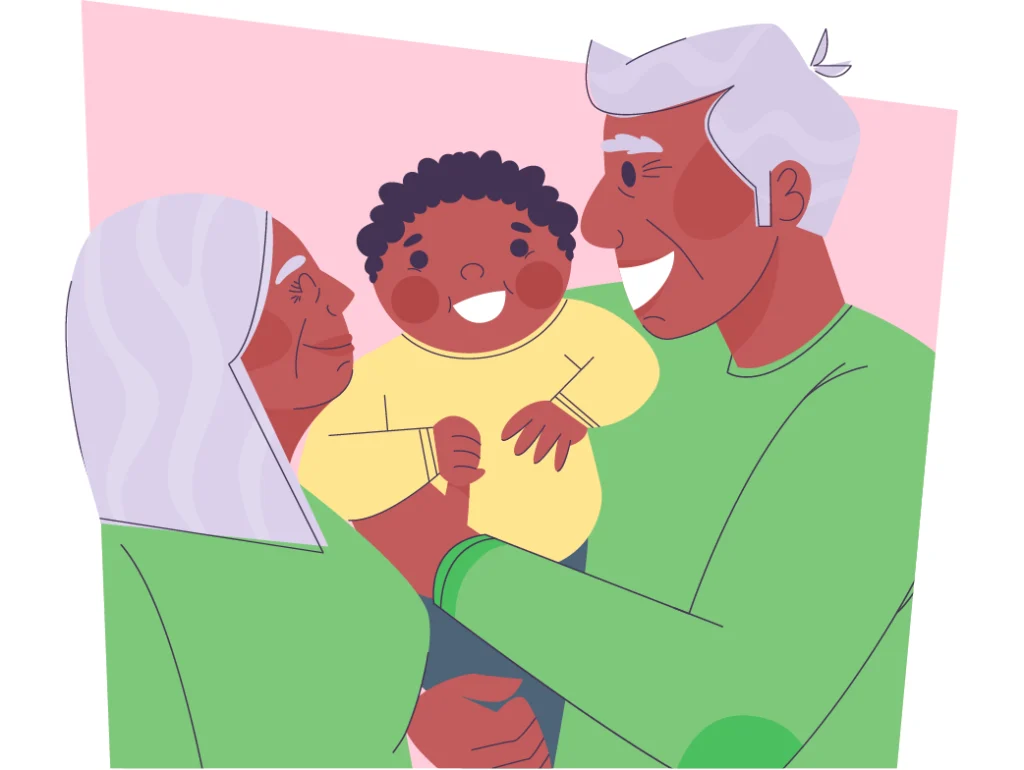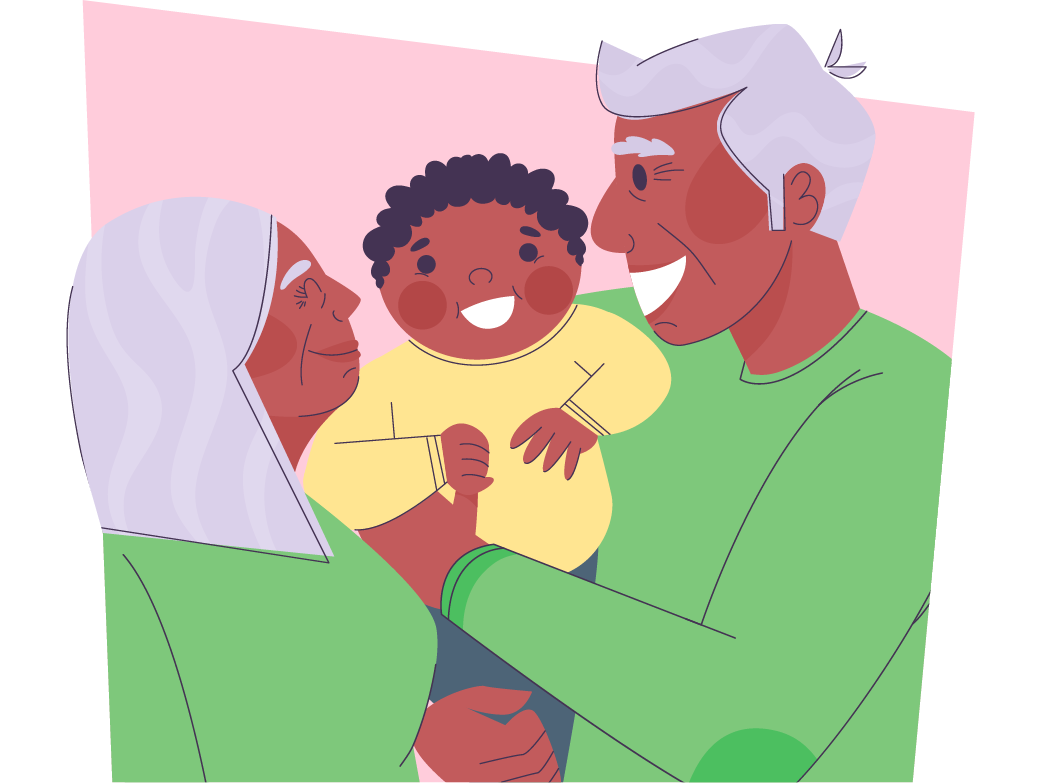
Adoption is the legal process by which a person obtains parental rights over a child.
The Children Act No. 29 of 2022 and the Hague Adoption Convention, 2019 which Kenya is a signatory to, govern adoption in Kenya.
Classification
Adoption can be classified into three categories:
-
1
International/ Inter country adoption - relates to applicants who are non -Kenyan citizens, seeking to adopt a child from Kenya. There is however an indefinite moratorium on inter country adoption of Kenyan Children by foreigners since 27th November 2014. -
2
Local adoption - adoption of Kenyan children within Kenya by Kenyan Applicants -
3
Kinship adoption - adoptions by applicants who are relatives of the child.
Requirements
- The child has to be at least six weeks old and has to be declared free for adoption by a registered adoption society.
- Before making an application for an adoption order, the child to be adopted must have been in the continuous care and control of the applicant in Kenya for a period of three consecutive months preceding the filing of the application.
- Both the child and applicant(s) must also be evaluated and assessed by a registered adoption society in Kenya.
- An application can be made either by a sole applicant or jointly by two spouses.
Eligibility
The child must be at least 6 weeks old and declared free to adopt by an adoption agency. One can also adopt any child who resides in Kenya regardless of whether they are a citizen or not. The applicant or at least one of the joint applicants must satisfy the following conditions:
- Be at least twenty-five years old
- Be at least twenty-one years older than the child
- Not have attained the age of sixty-five years
- Be a relative of the child or parent of the child.
Categories of Persons Exempted from Adoption
Certain categories of persons are also exempted from having adoption orders made in their favour, unless the court is satisfied that there are special circumstances that justify the making of an adoption order in their favour.
These include:
- A sole male applicant in respect of a female child.
- A sole female applicant in respect of a male child.
- An applicant or joint applicants who has or both have attained the age of sixty five years.
- A sole foreign female applicant.
- A sole foreign male applicant.
- Persons of unsound mind within the meaning of the Mental Health Act (Cap. 248)
- Persons charged and convicted by a court of competent jurisdiction for any of the offences set out in the Third Schedule of the Sexual Offences Act or similar offences. These include offences against children and offences involving bodily harm.
- Homosexuals.
- In the case of joint applicants, if they are not married to each other.
Process of Adoption
A sole applicant or joint applicants who have satisfied the conditions above must first approach a registered adoption society. The society will then assess the applicants and conduct a home visit to ascertain their living conditions and their suitability as parents. The society also conducts checks to ensure that the child is free to be adopted.
If the society is satisfied after conducting the necessary checks on the applicants, it will match the applicants with the child and declare the child free for adoption.
The society can then place the child under the care of the applicant(s) for a period of not less than three months after which the applicants can file an application in court.
Application to Court
- The application is presented at the court registry and a hearing date set. The applicants may also propose suitable Guardian ad litem to the court.
- Guardian ad litem in adoption proceedings is an independent person whom the court appoints to safeguard the interests of the child during the adoption proceedings.
- Unless the court extends the period of the appointment, the appointment of a guardian ad litem expires once the court makes its final order Applications must be accompanied by written consents, which vary depending on the circumstances of the child. These consents are as listed below:
- Consent of every person who is a parent or guardian of the child.
- Consent of the parents or guardian of the child’s mother – in the case of a child born out of wedlock whose mother is also a child.
- Consent of the father – in the case of a child born out of wedlock whose father has acquired parental responsibility in respect of the child.
- Consent of the other spouse – in case only one of the spouses is making the application
- Consent of the court of competent jurisdiction or of a government authority situated in the country where both or one of the spouses is ordinarily resident, permitting the spouses to adopt a foreign child – in the case of two spouses who are not Kenyan citizens and who are not resident in Kenya.
- Consent of the child – in the case of a child who has attained the age of 14 years
All adoption proceedings are to be heard and determined in chambers and the identity of the child and the applicants must be kept confidential. Once the court hears and determines the application, it could either grant or deny an adoption order.
If an adoption order is granted, the court directs the Registrar-General to make an entry in the Adopted Children Register in the prescribed form. The effect of an adoption order is that all rights, duties, obligations and liabilities relating to the child are transferred to the applicants, as if the child were their biological child.
Required Documents
- The child’s birth certificate.
- If the child is a school going child, a copy of the school progress report.
- Children officer’s report.
- Death certificate for deceased parents of the child.
- Chief’s letter.
- Home study report of the foreign adoptive parents prepared by a professional social worker.
- Recent photographs of the adoptive family.
- Marriage certificate of foreign adoptive parents.
- Certificate of medical fitness of adoptive parents duly certified by a medical doctor.
- Declaration regarding financial status of adoptive parents along with supporting documents including employer’s certificate, where applicable.
- Income tax assessment order of adoptive parents.
- Bank references
- Particulars of properties owned by the adoptive parents.
- Declaration from adoptive parents stating willingness to adopt the child.
- Undertaking from the social or child welfare enlisted agency sponsoring the foreigner to the effect that child would be legally recognized as a citizen of the adopter’s country without any form of discrimination and that the child would be entitled to the same rights as those of citizens of that country.
- Undertaking from the adoptive parents that adopted child would be provided necessary education and upbringing according to the status of adoptive parents.
- Undertaking from the social and child welfare enlisted agency that report relating to progress of the child along with his/her recent photograph would be sent quarterly during first two years and half yearly for the next three to CWSK.
- Certificate from the enlisted social or child welfare agency sponsoring application of the foreigner to the effect that adoptive parents are permitted to adopt a child according to the law of their country.

